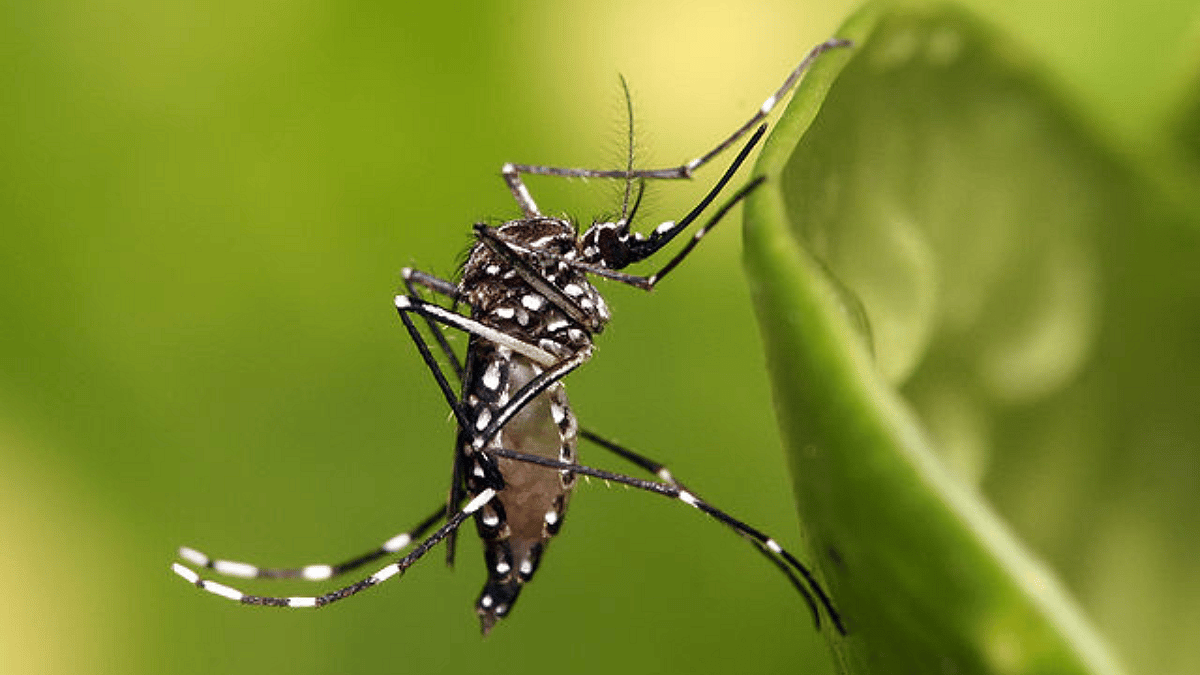Indore (Madhya Pradesh): Health officials here are gearing up to counter the threat of mosquito-borne diseases, particularly dengue and malaria, since the weather is changing and warmer temperatures may increase the risk of such diseases. To note, Indore grappled with a significant rise in dengue cases in 2024, marking a troubling escalation in mosquito-borne diseases. The city recorded 550 dengue cases in 2024 alone, including 327 men and 223 women, a dramatic increase from previous years.
While malaria cases remained relatively stable, dengue continues to present a major public health challenge, with authorities sounding alarm over the increasing number of cases and the potential fatality of the disease. The seriousness of the situation is underscored by the tragic fatality of teenagers.
The last death on record is of a 13-year-old boy in mid-December 2024, who succumbed to dengue, highlighting the devastating effects the disease can have on young and vulnerable populations. A 16-year-old boy suffering from dengue had died at a private hospital in Indore in September 2024 earlier. The disease remains a formidable threat, causing widespread concern as health officials continue to track and contain its spread.
Usual hotspots Past trends have shown an uptick in dengue cases in areas where the risk of transmission is highest, including Bhanwarkuan, Geeta Bhawan, Vijay Nagar, Musakhedi, Azad Nagar, Bichauli Mardana, Banganga, Nanda Nagar and Chandan Nagar. The 2024 surge in dengue cases has highlighted a disturbing trend in the city. While malaria has remained under control, dengue’s unpredictable outbreaks continue to put the public at risk.
Health experts attribute the rise in cases to multiple factors, including changing climate conditions that create ideal breeding grounds for mosquitoes. Keep your surroundings clean! Health officials have called on all city residents to maintain cleanliness, ensure there is no stagnant water and adopt preventive measures such as using mosquito nets and repellents. The campaign stresses the urgent need for collective action to eliminate mosquito breeding sites and reduce the risk of both dengue and malaria outbreaks.
Campaign to curb dengue & malaria
A dengue and malaria prevention campaign in Indore was launched on Tuesday with the flagging off of four Edengue and malaria Raths under the Elimination of Mosquito-borne Endemic Diseases (EMBED) Programme, by key health officials, including Dr Shaji Joseph, Dr Sharad Gupta, Dr BS Setia, and Dr Daulat Patel. The campaign, covering all four zones of the city, aims to spread awareness about the symptoms, treatment and prevention of both diseases through loudspeakers and handbills. The health department has adopted a strategic approach, dividing the city into four zones for focused intervention.
The campaign includes larvae surveys, destruction efforts at homes with previous cases and behaviour change communication (BCC) and information, education, and communication (IEC) activities. These measures are designed to raise awareness and actively combat mosquito breeding, with the goal of reducing the spread of dengue and malaria in the city. The efforts reflect a comprehensive strategy to protect public health and curb disease transmission.
